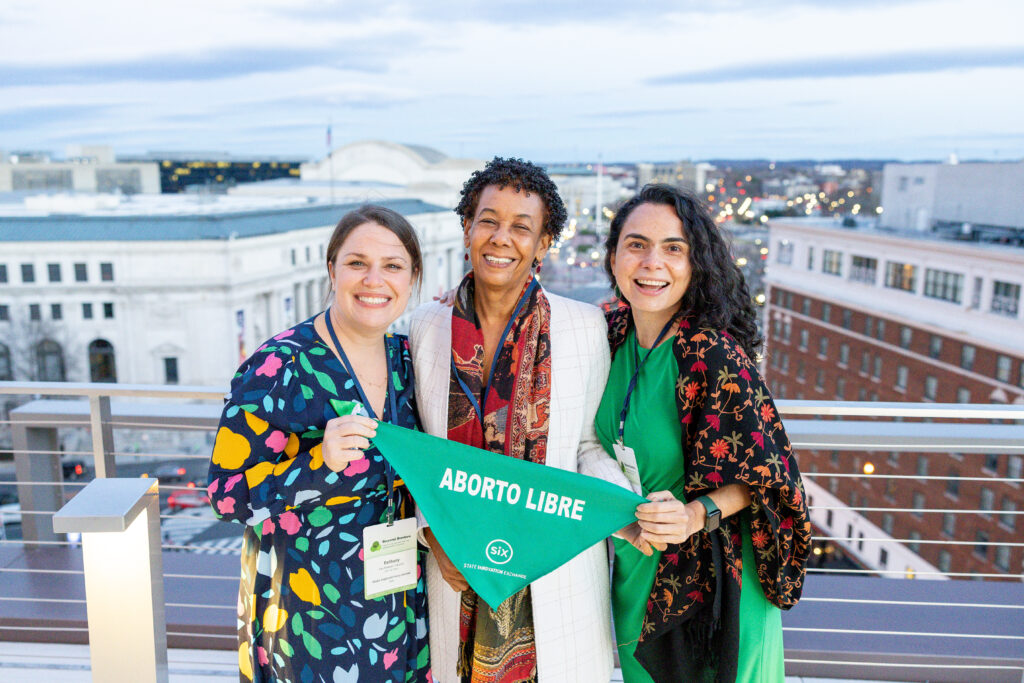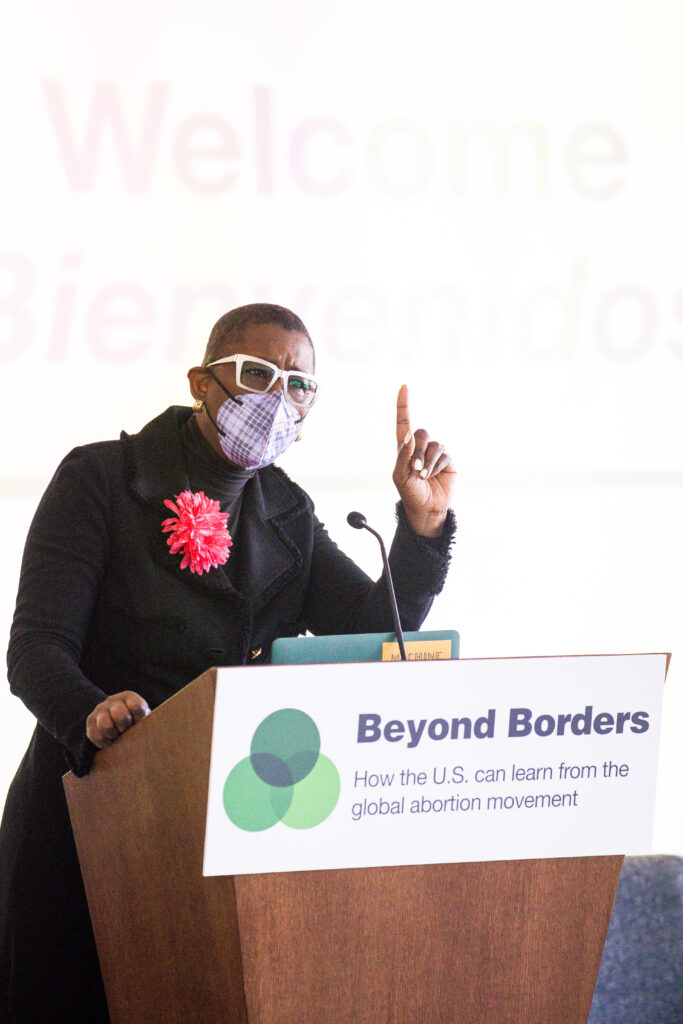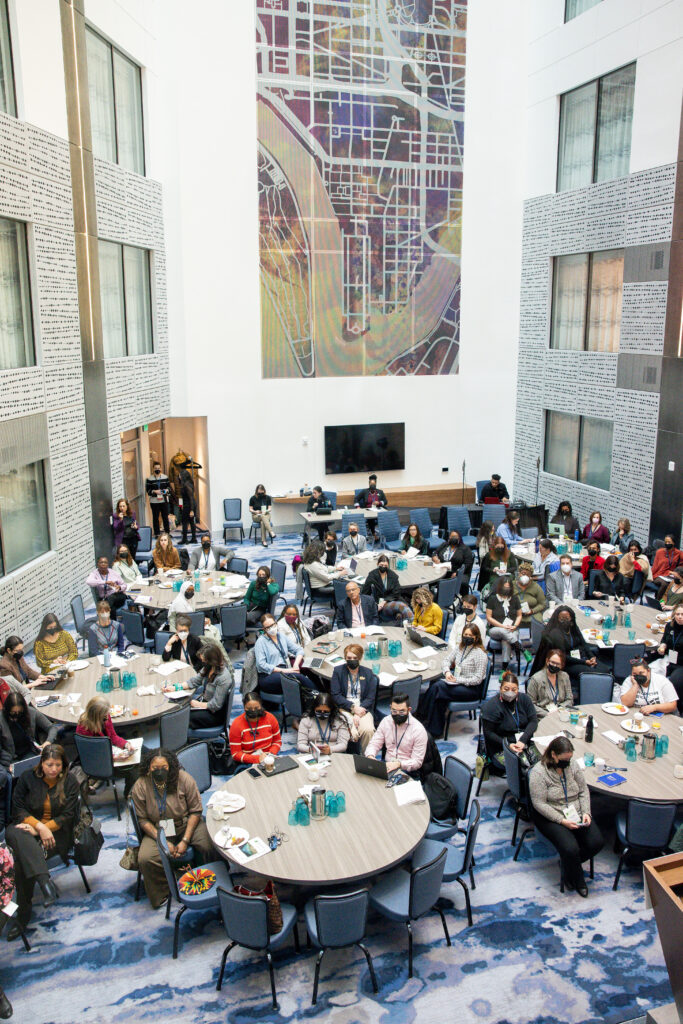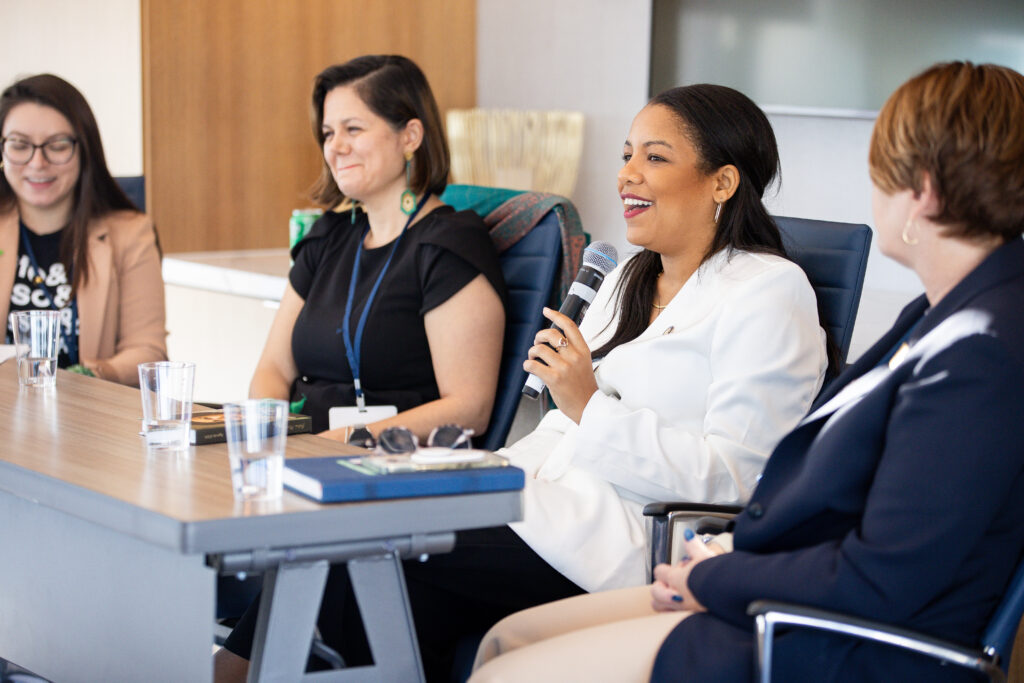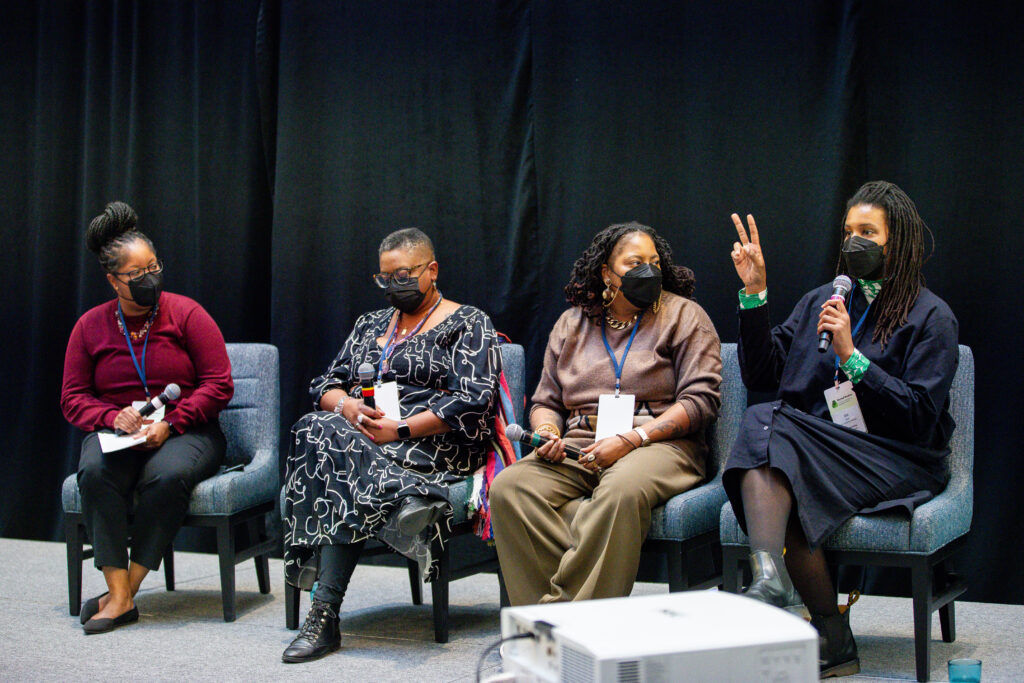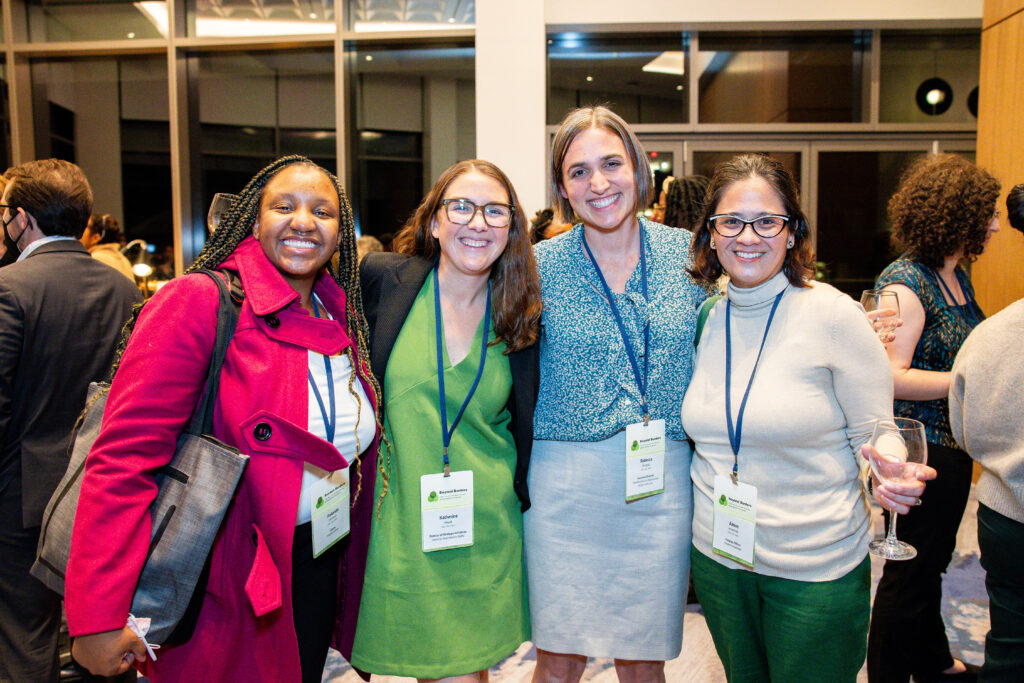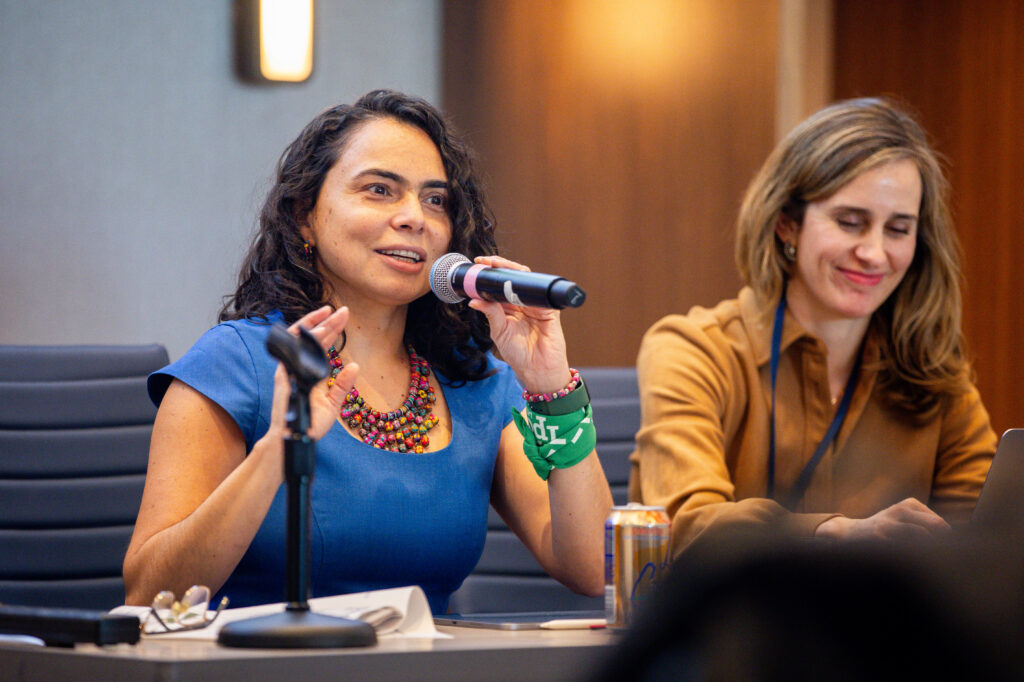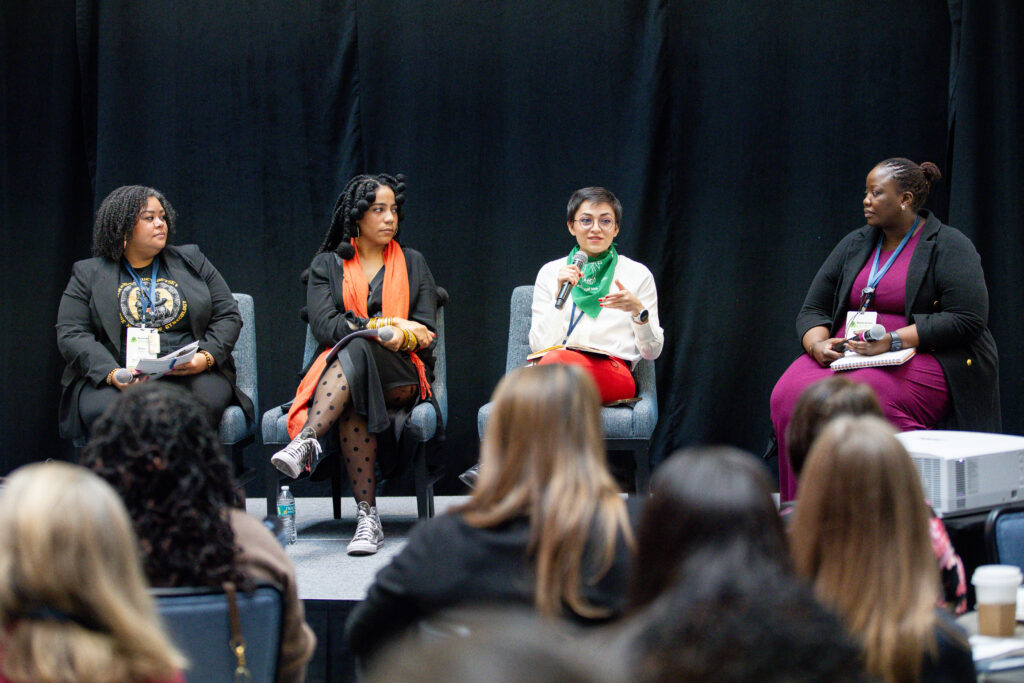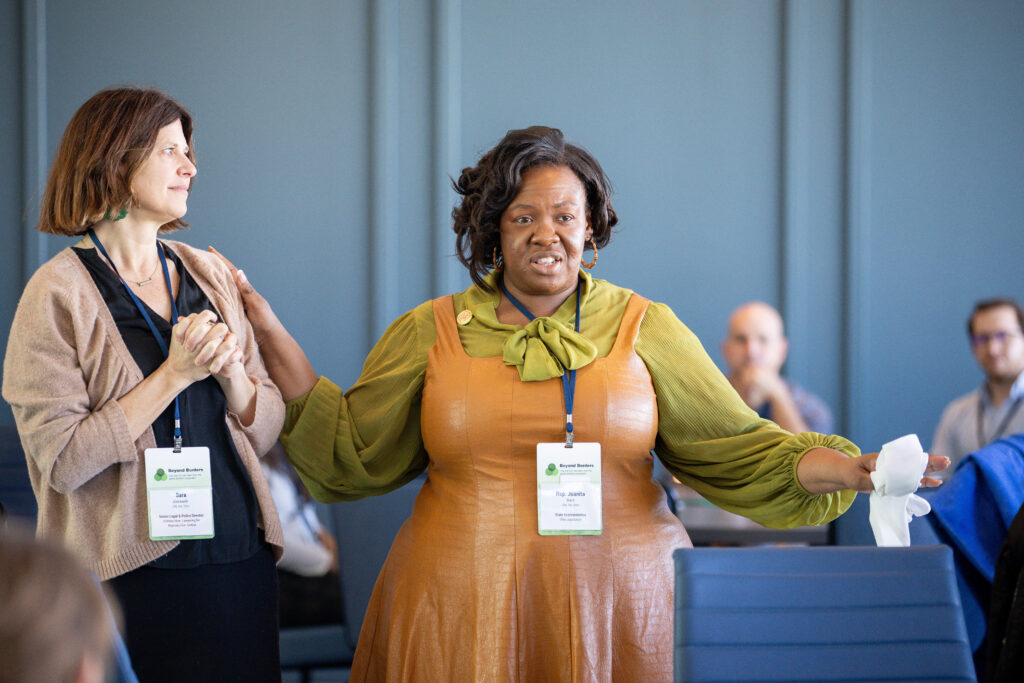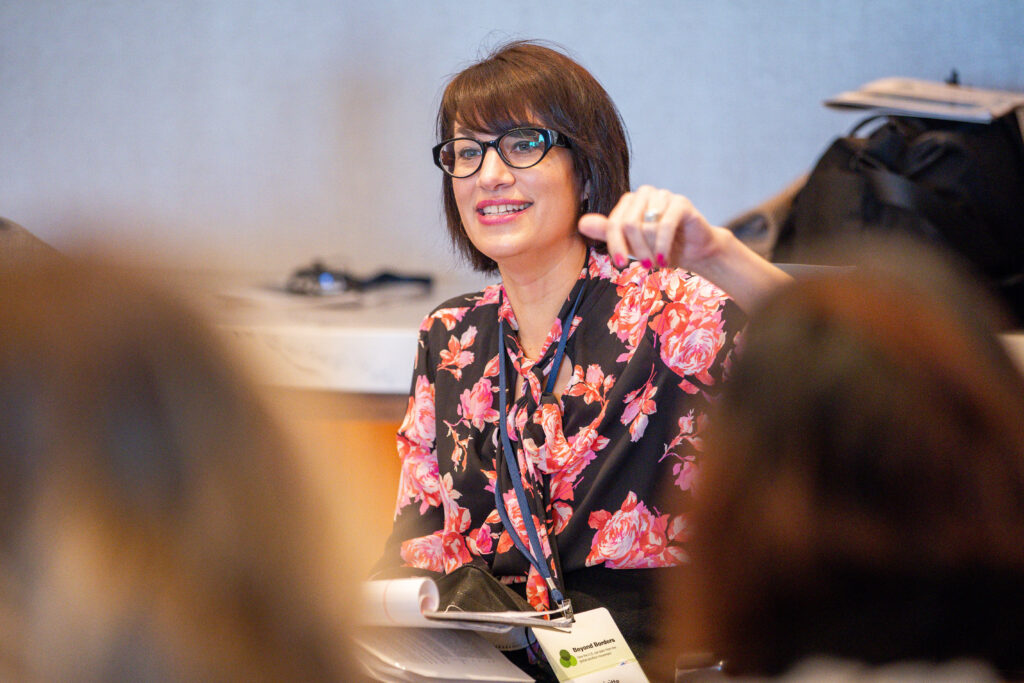On January 10-11, 2024, State Innovation Exchange (SIX) partnered with the O’Neill Institute at Georgetown Law to host Beyond Borders, an in-person, 2-day convening on international abortion rights in Washington, D.C. The goal of the convening was to center state lawmakers in visionary, global conversations on abortion access and the impact the broader human rights struggle for reproductive rights is having in the United States.
We were honored to host over 120 state lawmakers, U.S. advocates and international human right experts. We have speakers from Brazil, Chile, Colombia, the Dominican Republic, El Salvador, India, Kenya, Mexico, Poland and Uganda! The entire gathering was multilingual, with simultaneous English, Spanish and Portuguese translation.
- Professor Michele Goodwin’s opening plenary
- Beyond Borders attendees
Our incredible opening speaker was Professor Michele Goodwin who grounded us in U.S.’s racist history of reproductive oppression. In her remarks, Professor Goodwin reminded us that the Dobbs decision can be traced back to the days of enslavement when Black women’s bodies were exploited to serve economic goals. She connected history to the present day by showing how language used in advertisements to track down enslaved individuals who had runaway are mirrored in the language of abortion bans. Professor Goodwin closed by sharing that the way to move forward is to acknowledge and understand the footprints of our history. Her moving statements reminded attendees about the critical importance of centering racial and economic justice through a historical lens if we seek to create true progress and not repeat the past.
- Body politic: U.S. lawmakers learning lessons from abroad working group
- Visioning our Future: Reproductive Justice Perspectives plenary
- Beyond Borders welcome reception
- Tackling Barriers to Effective Implementation of Abortion Laws
Applying the human rights framework to abortion access was a core theme throughout the sessions shared by international partners. The human rights framework allowed advocates to challenge pregnancy criminalization in Poland, Brazil and El Salvador, push courts to legalize abortion in Colombia and Mexico and challenge the limitations of exceptions to abortion bans in El Salvador and India.
Another key takeaway was how other countries root the right to abortion in a human rights framework rather than on a right to privacy. This requires centering the dignity of the pregnant person and rejecting attempts to limit their human rights by creating a state interest in their pregnancy. The human rights framework also provides the groundwork to make broader reproductive justice arguments on issues like maternal health, fair wages, universal healthcare and more.
On the second day of Beyond Borders, Ohio State Representative Juanita Brent shared the breaking news that the charges against Brittany Watts have been dropped. This powerful moment reiterated the importance of fighting against pregnancy criminalization in a global context as it’s always been a tool of oppression used by state actors to limit bodily autonomy.
- Birth Justice plenary panel
- Ohio State Representative Juanita Brent
- Emerging Areas in Abortion Law & Policy working group
- Beyond Borders attendees
We know that the fight for abortion access, pregnancy decriminalization and reproductive justice can’t happen in isolation. This fight is global and it calls on those of us in the United States to look to other countries and learn from their deep expertise and models of care.
From this conference, legislators and advocates from the United States shared that they plan to deepen their understanding of the international human rights framework in order to inform their policy making and advocacy. Additionally, international partners mentioned that it’s their hope that by sharing out their strategies and forming new relationships with advocates, that we’re able to build solidarity beyond our borders.




